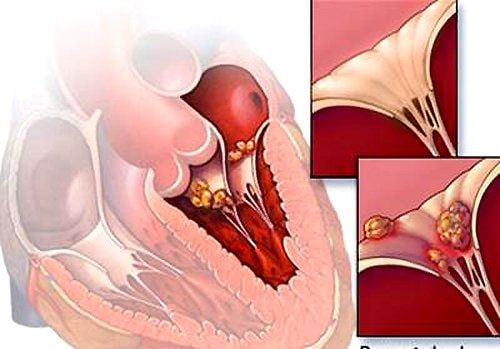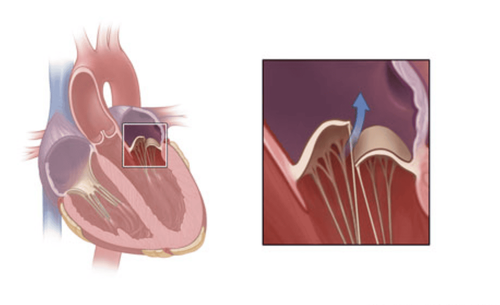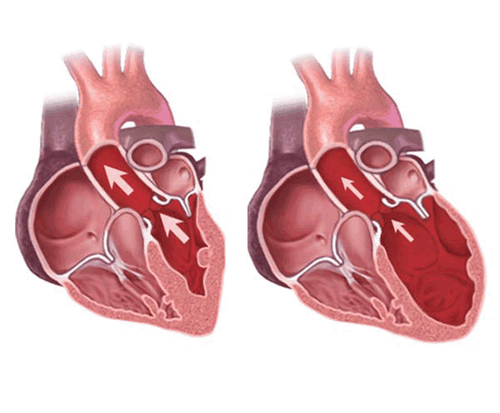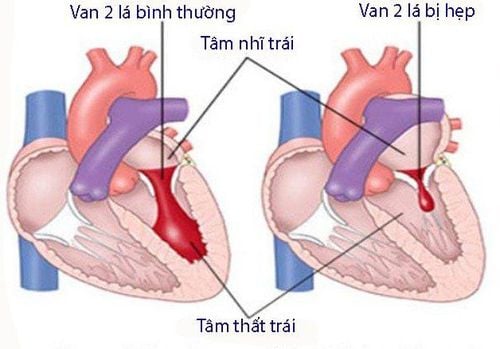This is an automatically translated article.
Rheumatic heart disease is an inflammatory disease of the whole heart, including inflammation of the endocardium, myocardium, pericardium or a combination of the three above, which can cause many complications. So how dangerous are the complications of rheumatic heart disease and is rheumatic heart disease curable?
1. What is rheumatic heart disease?
Rheumatic fever is an autoimmune inflammatory disease, formed after a patient has a sore throat caused by a group A hemolytic streptococcal infection (named Streptococcus). Within 2-3 weeks from the time of infection with oropharyngeal streptococci, if not treated aggressively, this disease has the risk of progressing to another more dangerous disease, which is rheumatic heart disease.
Can rheumatic heart disease be cured? Although rheumatic heart disease can be cured, there is a possibility of recurrence. The use of antibiotics in the treatment and prevention of streptococcal respiratory infections is a decisive factor, but it must be based on the individual situation of each person, severity and time of diagnosis to make a conclusion. final argument.
2. Complications of rheumatic heart disease
Is rheumatic heart disease dangerous? Doctors believe that rheumatic heart disease will lead to serious complications in the brain, heart, joints and skin if not diagnosed early and treated promptly.
2.1 Heart Complications This disease can have long-lasting effects on the heart, including: inflammation of the heart, damage to the heart valves, heart failure, arrhythmia, stroke or even death. Specifically:
Infarction: Inflammation of the endocardium in the heart will produce pieces of lumps that cause infarction of the brain, kidneys and extremities. Acute and subacute infections: Endocarditis makes it easy for bacteria to cause infection. Fibrosis of the heart valves: There are two types of valvular regurgitation and valvular stenosis. In fact, a simple lesion of stenosis or regurgitation is rare in rheumatic heart disease, but can still be listed as follows:
Regurgitation: Includes mitral regurgitation, aortic regurgitation, and valvular regurgitation. tricuspid and pulmonary valve. In general, opening any valve of the heart will cause the heart to dilate and fail, observing through ultrasound images can see that the heart is larger than normal and the apex appears round. Heart valve stenosis: Also divided into mitral stenosis, aortic stenosis, tricuspid regurgitation, and aortic stenosis. Heart valve disease often causes the left ventricle to atrophy and become smaller than normal, or vice versa, causes left ventricular hypertrophy and eventually leads to heart failure.

2.2 Complications in other organs Rheumatic heart disease affects many systems of the body, damage to the heart is just one of many complications that show how dangerous rheumatic heart disease can be. In addition, some other effects can be mentioned such as:
Polyarthritis: The patient will experience pain, swelling, and redness in the large joints. For movable joints, clinical features are limited mobility and difficulty moving. This joint pain is cyclical in nature, when one joint heals, it will move to another, which is rarely completely cured. Changes in subcutaneous connective tissue: The skin appears solid particles (Meynet granules) around the joints or along the spine, moving and painless to the touch, the size of a pea or a corn grain. In addition, the patient may also have a red rash on the neck, a round and pale rash in the middle, about 1-3cm in size. However, both cases above can also heal completely without leaving significant sequelae. Brain damage: A neurological disorder that causes patients to move involuntarily in the whole body, half of the body or in the limbs. Fast and aimless action is called choreography. In summary, whether rheumatic heart disease is dangerous depends on the time of detection and the level of aggressive treatment. Medical studies have shown that rheumatic heart disease is associated with poor sanitation and nutrition, especially in some developing countries. Currently, there are still many middle-aged or elderly patients who have to go to the hospital because of the sequelae of heart valve damage as a result of the rheumatic heart disease they had at a young age.
Please dial HOTLINE for more information or register for an appointment HERE. Download MyVinmec app to make appointments faster and to manage your bookings easily.













